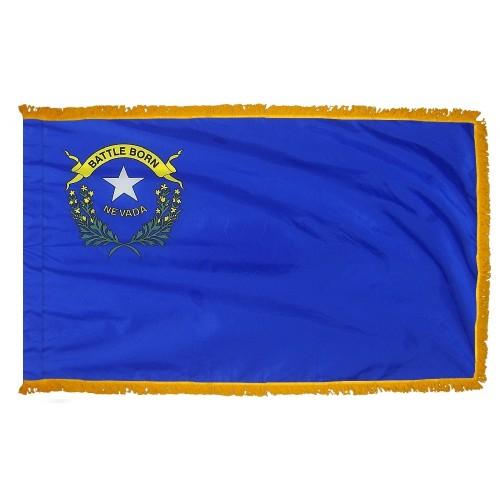The state of Nevada, the 36th to join the Union, has had several flags during its history. The first flag was created in 1905 by Governor John Sparks and Colonel Harry Day. On a blue background, this flag featured 36 stars with the words “Silver†and “Gold†at the top and bottom respectively and the state’s name in the center. This design, reflective of Nevada’s mineral resources, was changed in 1915 to feature the Nevada Coat of Arms instead of the silver and gold resources. The state name is at the top of the Coat of Arms and the words “All For Our Country†are beneath it. The gold and silver stars were resized and rearranged in an oval around the Coat of Arms. Since this flag was expensive to reproduce, a design contest was held in 1926 to come up with a flag that would be more economical to produce. Louis Schellbach, III won the contest with a design made up of a wreath of sagebrush (the state flower) cradling a silver star with “Nevada†circling its points. A ribbon at the top of the wreath contains the words “Battle Born†in recognition of the fact that Nevada became a state during the Civil War. The background was still blue, but gone was the Coat of Arms. In 1929, after some political disagreements over the placement of the state’s name were worked out, the bill adopting this design was signed into law—or so they thought! The bill, however, did not contain the legislative compromise regarding the name placement (in a semi circle beneath the star), and so the word “Nevada†continued to be placed around the star in error for more than 60 years. Finally, in 1991, the legislature corrected the error and further defined the background as cobalt blue.
